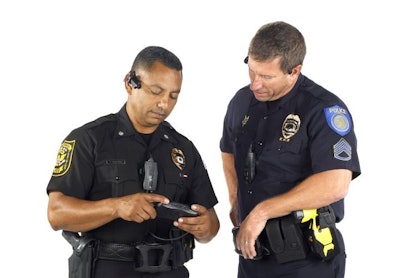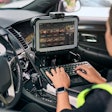 Officers with TASER's Axon Flex on-body video system. Photo courtesy of TASER.
Officers with TASER's Axon Flex on-body video system. Photo courtesy of TASER.
Two issues immediately come to mind when considering deployment of body-worn recorders. First is the concern for privacy. Some systems don't alert others when they're recording, and it's easy to forget to turn the recorder off after a call or traffic stop.
So casual conversations with the potential for embarrassment can wind up in your evidence files. You should consider establishing a policy on the use and retention of communications between department members, especially when there hasn't been explicit notice that a recording is being made.
While it might be tempting to catch someone making a disparaging comment about the sheriff or another officer, use or even disclosure of those recordings will create an atmosphere of paranoia. Delete the "insider" recordings right away, whether they were made intentionally or otherwise, and consider a code word or phrase to alert others that a recording is being made such as "Elmer's here."
Related:














